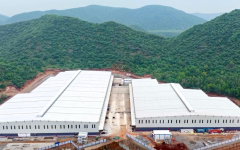
Balagopal Balachandran, National Head – Air Freight, FEI Cargo said, “India’s logistics sector is witnessing rapid transformation as infrastructure, policy, and sustainability initiatives converge. The inauguration of Navi Mumbai International Airport this week marks a major milestone — expected to handle over 1 million tonnes of cargo annually once fully operational, easing pressure on Mumbai Airport and creating new opportunities for exporters from western India. On the surface side, the Dedicated Freight Corridors (DFC) continue to expand, improving rail transit times by up to 30–40 per cent, while the PM Gati Shakti program accelerates multimodal connectivity between ports, airports, and industrial zones. Meanwhile, India’s first battery swap station for electric trucks at Delhi’s cargo terminal highlights growing momentum toward greener and more cost-efficient last mile transport. Despite these gains, global disruptions including Red Sea diversions and fluctuating ocean freight rates are reshaping trade flows. Indian exporters are increasingly balancing sea and air routes, using digital freight platforms to enhance visibility and manage cost volatility. With infrastructure upgrades, technology adoption, and sustainability at the forefront, India is steadily evolving into South Asia’s logistics powerhouse, poised to support $2 trillion in export ambitions under the government’s 2047 vision.”
 Cargo Breaking News
Cargo Breaking News


